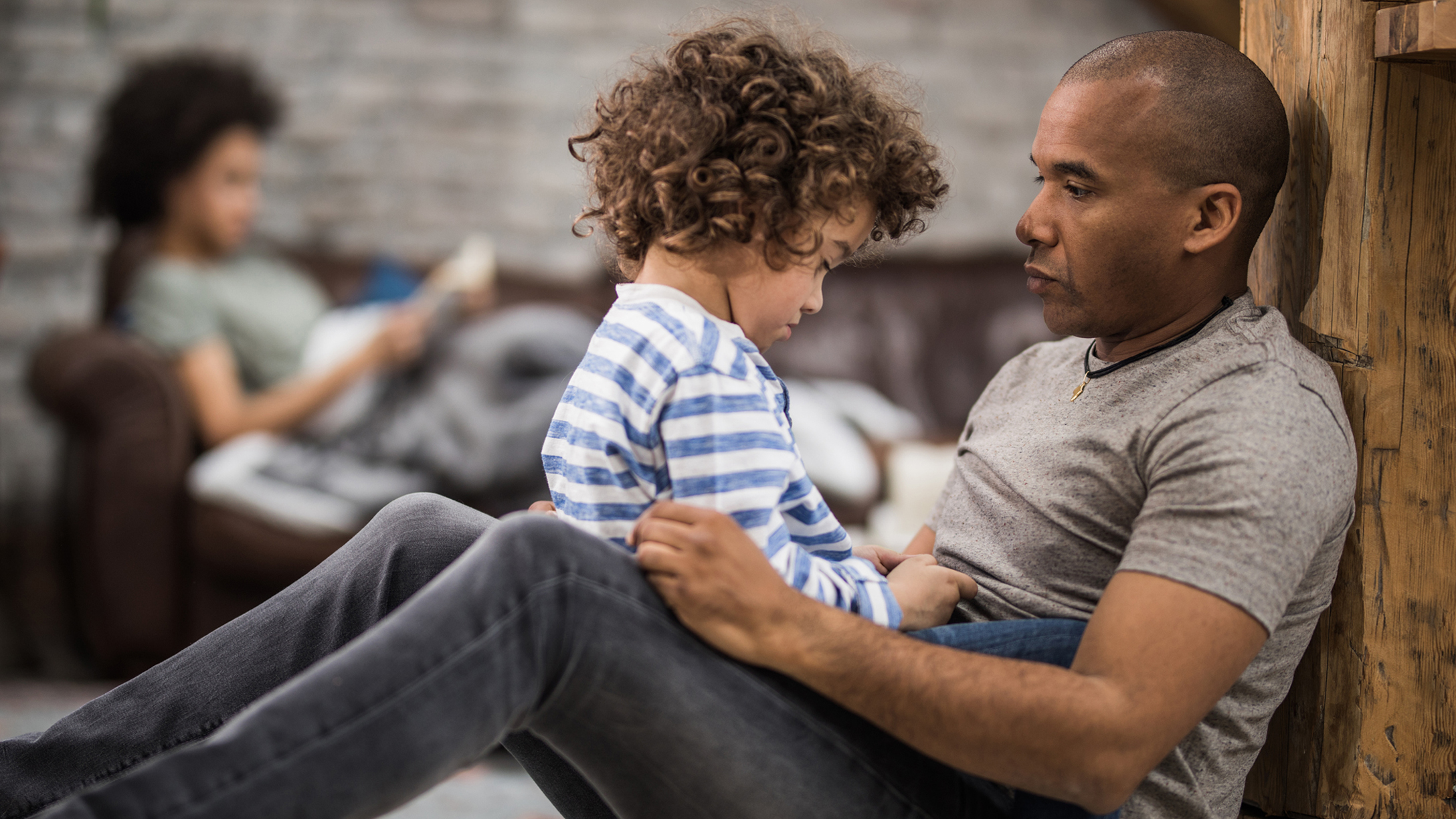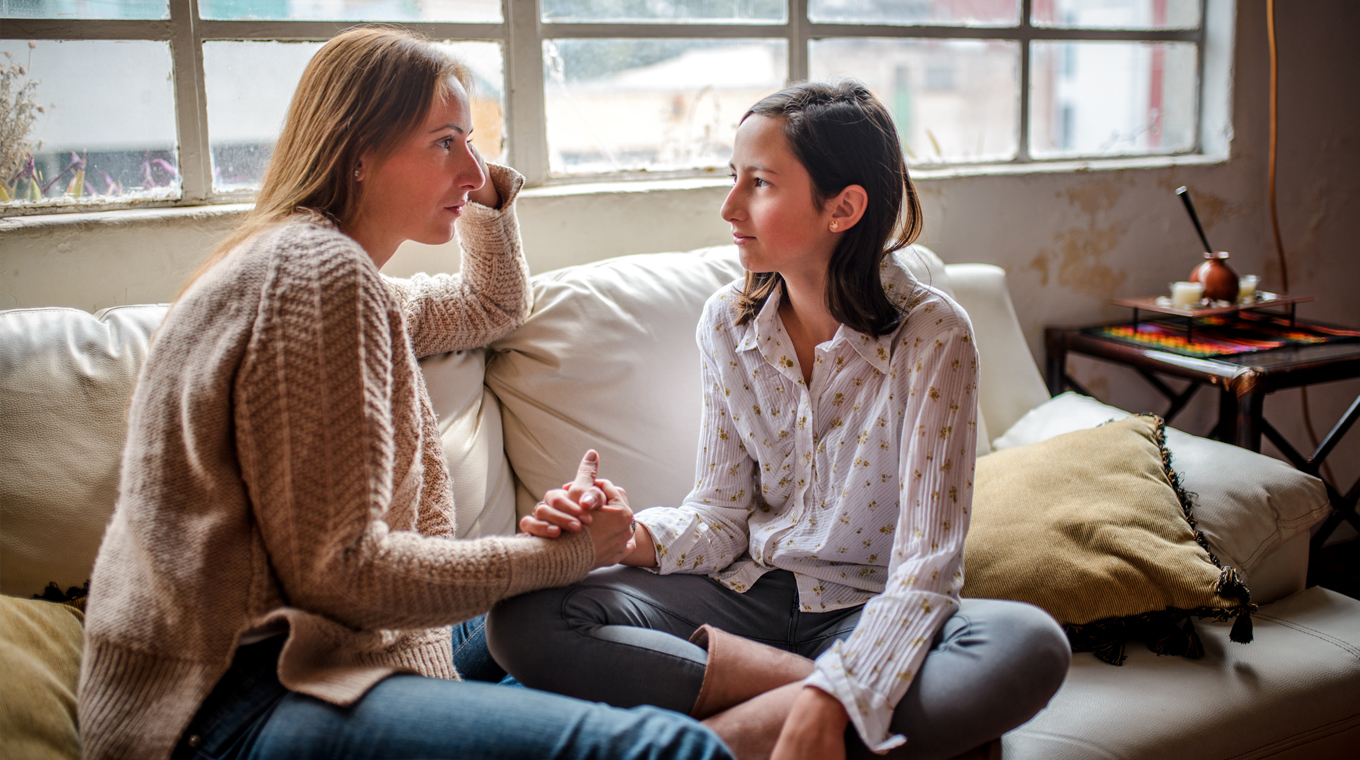
In this article
For many of us, talking to kids about mental health — especially in regards to mental illness — is difficult. Some parents may feel as if they’re protecting their kids and their innocence by not talking about depression or anxiety or mental health in general, but thanks to the pandemic, there has been an increase in mental health issues for kids.
As our children head back to school, we can introduce them to the concept of mental health in ways that are nonthreatening and not scary. Read on for some tips on how to explain mental health to your child.
The pandemic and its effect on kids’ mental health

Now that the world seems to be opening up again for the moment, many children are still processing the last year and half in lockdown. “The COVID-19 quarantine caused significant social isolation, so approach [your kids] with an open dialogue about how this has impacted them,” psychologist Dr. Stacie Coveleski told Mom.com. Beyond the isolation, many children also experienced emotional wear from stress, social distancing, academic disruption, and anxiety, negatively impacting their mental health.
As children return to school for the fall, know that your children might act out — not because they’re bad, but because they don’t know how to express their fears and emotions.
This is important even for older kids. “It is key to regularly provide a space for your teen to share while displaying patience, as well as a non-judgmental attitude,” Coveleski said. She also noted that teens tend to prioritize their friends, so parents may find it helpful to ask about their friends as a means to begin tough conversations.
Mental health issues: Why it’s important to explain to kids

There is still such a stigma when it comes to mental health — it’s so important for parents to frame mental health in a way that normalizes taking care of ourselves.
“Society teaches us that expressing emotion is bad,” mental health advocate and pre-professional Anitra Durand Allen told Mom.com. “I want [my teens] to know that emotions are normal and the goal is learning to manage our responses. This, however, requires that we allow feelings to have their place.”
“Just like how you talk about taking care of your body with getting doctor check-ups yearly, vaccines, and personal hygiene, you can talk about taking care of your mental health with your children,” pediatrician Steph Lee, MD, MPH, FAAP told Mom.com. The American Academy of Pediatrics (AAP) spokesperson suggested parents start by normalizing mental health. “Check in with their emotional state every day and consider it a bonding opportunity. One technique I love from positive psychology is asking what three positive things happened to me today?”
How to talk with your kids about their mental health

Of course, it’s one thing to know that it’s a good thing to talk to our kids about their mental health. It’s another thing entirely to do it. For parents of teens, keep in mind that they’re in a tricky developmental stage where they’re separating from their parents and forging their own identities. “As a parent begins to engage regarding mental health, teens may push for privacy,” cautioned Coveleski.
If you’re stuck for how you can discuss your kids’ mental health in the same way they would talk about their physical ailments, here are a few tips:
Use celebrities and current events
When Disney Channel's Cameron Boyce died, Allen realized she needed to discuss current events with her girls and how they were emotionally affected by grief, loss, anxiety, and depression. “Now, we discuss current events routinely and give them the space to express themselves authentically without censorship,” she added.
Be open and transparent
When counselor Katherine Shorter mentored teens, she said being open and honest always worked best. “Let them know that mental health issues are nothing for which they should be ashamed,” she told Mom.com. “Help them develop coping mechanisms and positive mantras, recognize triggers, and refer out to a psychiatrists for medications, if need be.”
Model behavior
Kids can smell a fraud a mile away. One of the best ways you can engage your children in the ongoing conversation of mental health is to show them how to take care of your minds and feelings.
“My children have seen me cry and admit when I am having a bad day, which made them feel it was OK to verbalize and share with me how they were feeling,” editor Jeannette Kaplun told Mom.com. Now that her kids are teens, whenever Kaplun sees them stressed out or moody, she will remind them that asking for help is never a sign of weakness, but of strength. “I have shared my own struggles to help them understand it’s part of our life and that we can learn to manage our mental health,” she said.




